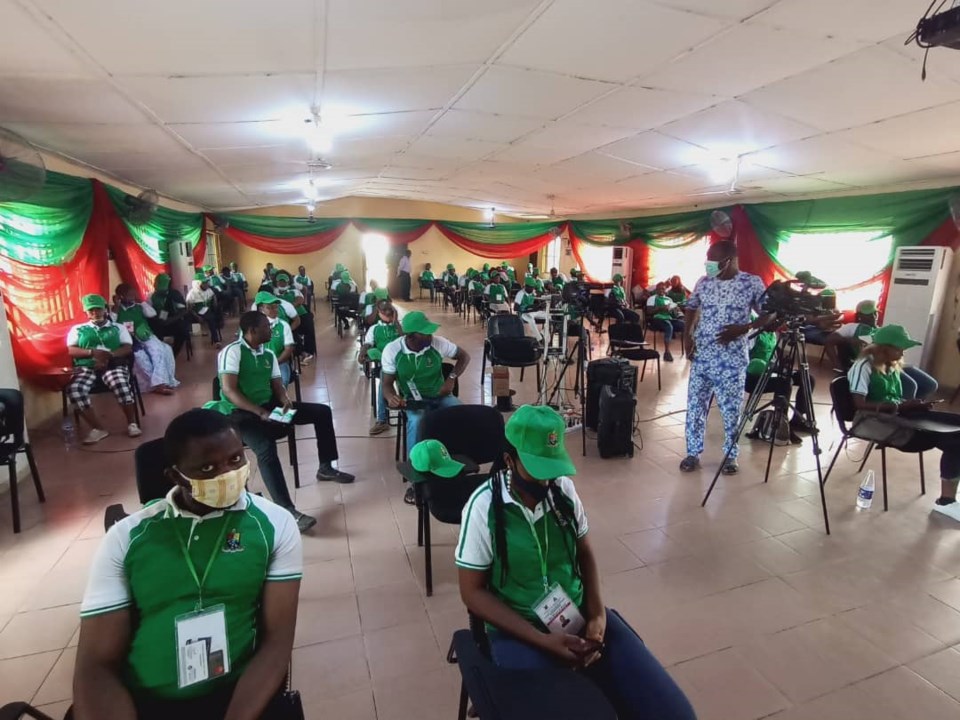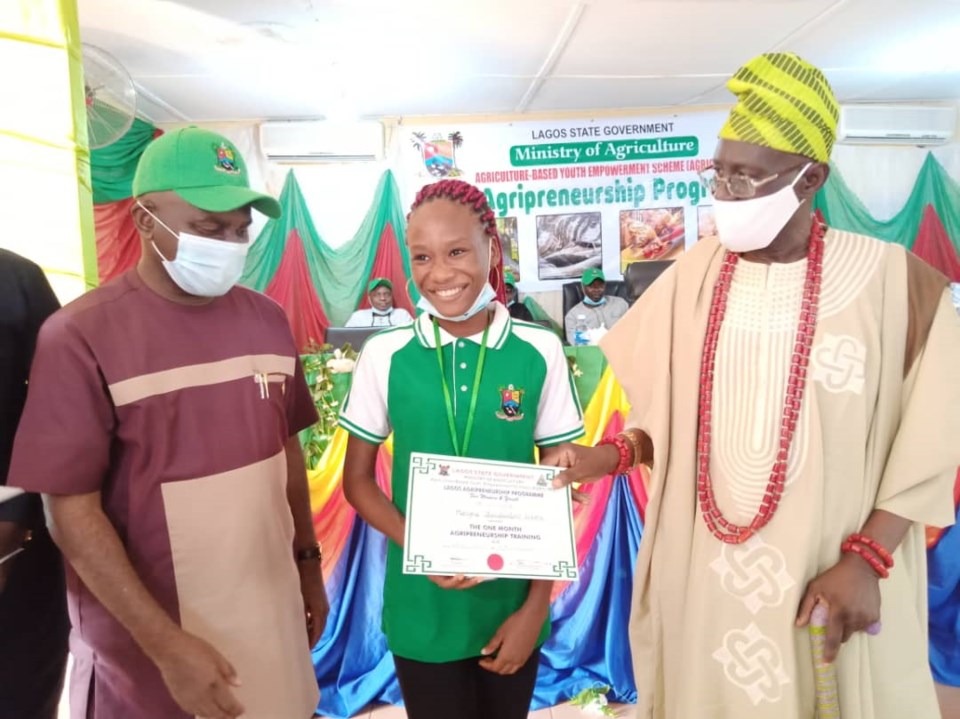At least 100 graduands of the State Agripreneurship Programme, comprising women and youths, have been charged to be committed to the attainment of the government’s food security goal as Alimosho Local Government Area (LGA) is projected to be the largest among the 15,000 beneficiaries in the forthcoming 2023 training.
 Participants at the programme
Participants at the programmeThe Lagos State Commissioner for Agriculture, Ms Abisola Olusanya made this known in a statement over the weekend.
Olusanya, who stated at the closing and graduation ceremony of the second batch of the Lagos Agripreneurship Programme at the Agricultural Training Institute, Araga, Epe, further reiterated the commitment of the State Government to engage, equip and empower women and youths to become world-class Agripreneurs.
Recall that The Nigerian Incentive-based Risk Sharing System for Agricultural Lending (NIRSAL) had commenced its agro geo-cooperative project in Alimosho LGA of Lagos, on September 3, 2020.
Represented by the Permanent Secretary, Ministry of Agriculture, Dr Olayiwole Onasanya, the Commissioner noted that the Lagos Agripreneurship Programme was conceptualised by the State to solve the hydra-headed problem of women and youth unemployment in the State.
The Commissioner said: “Previous administrations have embarked on a journey to create jobs, alleviate poverty and ensure food security in Lagos State, through the establishment of an Agriculture-based Youth Empowerment Scheme, popularly known as Agric-Yes. Over the years 600 youths have been trained in various agricultural value chains."
Noting that the Lagos Agripreneurship Programme was set up with the aim of training and empowering residents in Aquaculture, Poultry, Piggery and Vegetable as well as Entrepreneurship skills and E-Agric, the Commissioner disclosed that the purpose was to train 15,000 women and youths at the various training facilities by the year 2023, which is in line with the objective of promoting Agriculture in order to make the State a 21st-century economy as espoused in the T.H.E.M.E.S Agenda.
Olusanya revealed that the Lagos Agripreneurship Programme, which was flagged off on the 10th of February, 2020, has so far trained a total of 300 participants made up of 200 in Batch One and 100 in Batch Two.
“We are strongly committed to the implementation of the second phase of the programme which includes a partnership with existing farms/agribusinesses with a view to attaching beneficiaries to agribusinesses closest to their location of residence for internships, pending linkage to sources of finance; facilitation of access to financing; the establishment of additional enterprise-specific Farm Estates across the State, where participants could be allocated land space according to their enterprise of interest and location, among other benefits,” Olusanya asserted.
Speaking earlier, the Director of the Agricultural Training Institute, Mr Adeyinka Omirin explained that during the one-month training, participants were exposed to theoretical and practical training, stating that Entrepreneurship and E-Agriculture modules were also incorporated into the programme.
He expressed confidence that with the level of engagement experienced during the programme, participants would make a remarkable impact in the agricultural space locally and internationally.
One of the graduands, Mr Gabriel Oludare, who spoke on behalf of the other participants, appreciated the state government for coming up with such a productive initiative, saying that they all have been ably equipped to conquer the agricultural space and make a mark in contributing to the food security objective of the State.



